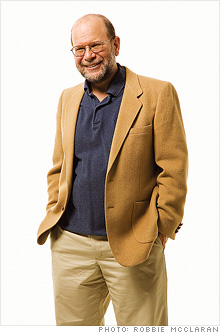Betting it all on emerging markets
Just because a country is growing rapidly doesn't mean your investments there will.
 |
| William J. Bernstein is co-founder of Efficient Frontier Advisors and author of "The Four Pillars of Investing" and "A Splendid Exchange." |
(Money Magazine) -- After being shell-shocked by nearly two years of brutal losses, investors are finally emerging from their T-bill and CD foxholes, looking for bigger returns. And high up on their wish list are emerging-stock funds.
Makes sense, right? Developing countries are, after all, expected to lead us out of this global recession. And in the long run, countries like China and India will almost certainly leave economies in the U.S., Europe, and Japan in the dust. There's just one glitch: Economic growth and stock returns don't always move in sync.
If they did, your S&P 500 fund would have made you money this past decade. And Chinese shares should have been the top performers, since GDP in China grew nearly double digits annually between 1998 and 2008. But the MSCI China index rose just 3% a year, vs. nearly 20% for stocks in Russia, where the economy grew a third slower.
Maybe a decade is too short. Okay, let's consider the past 20 years. U.S. equities gained 8% a year at a time when our economy grew less than 3% annually. By comparison, China's economy soared 9% a year, but its stocks didn't do nearly as well.
What gives? For starters, politics often gets in the way of equity market performance, as it did in China 20 years ago after the Tiananmen Square crackdown.
Then there's the fact that as an economy grows, new companies start issuing shares and existing firms sell additional stock, diluting your cut of a country's earnings. Every year in the U.S., for example, there are 2% more shares among which to divide corporate profits. But in the emerging markets - particularly in Asia - share dilution can run as high as 20% to 30% a year.
Also, fast growth in places like China isn't exactly a secret. So initial prices are high, which lowers future returns.
That doesn't mean you should avoid the emerging markets. They offer useful diversification. But spread your bets and invest in moderation - put no more than 5% to 10% in an emerging-markets fund. And remember the lesson of the tortoise and the hare: Fast but unpredictable rarely wins the race.
William J. Bernstein is co-founder of Efficient Frontier Advisors and the author of "The Four Pillars of Investing" and "A Splendid Exchange." ![]()


